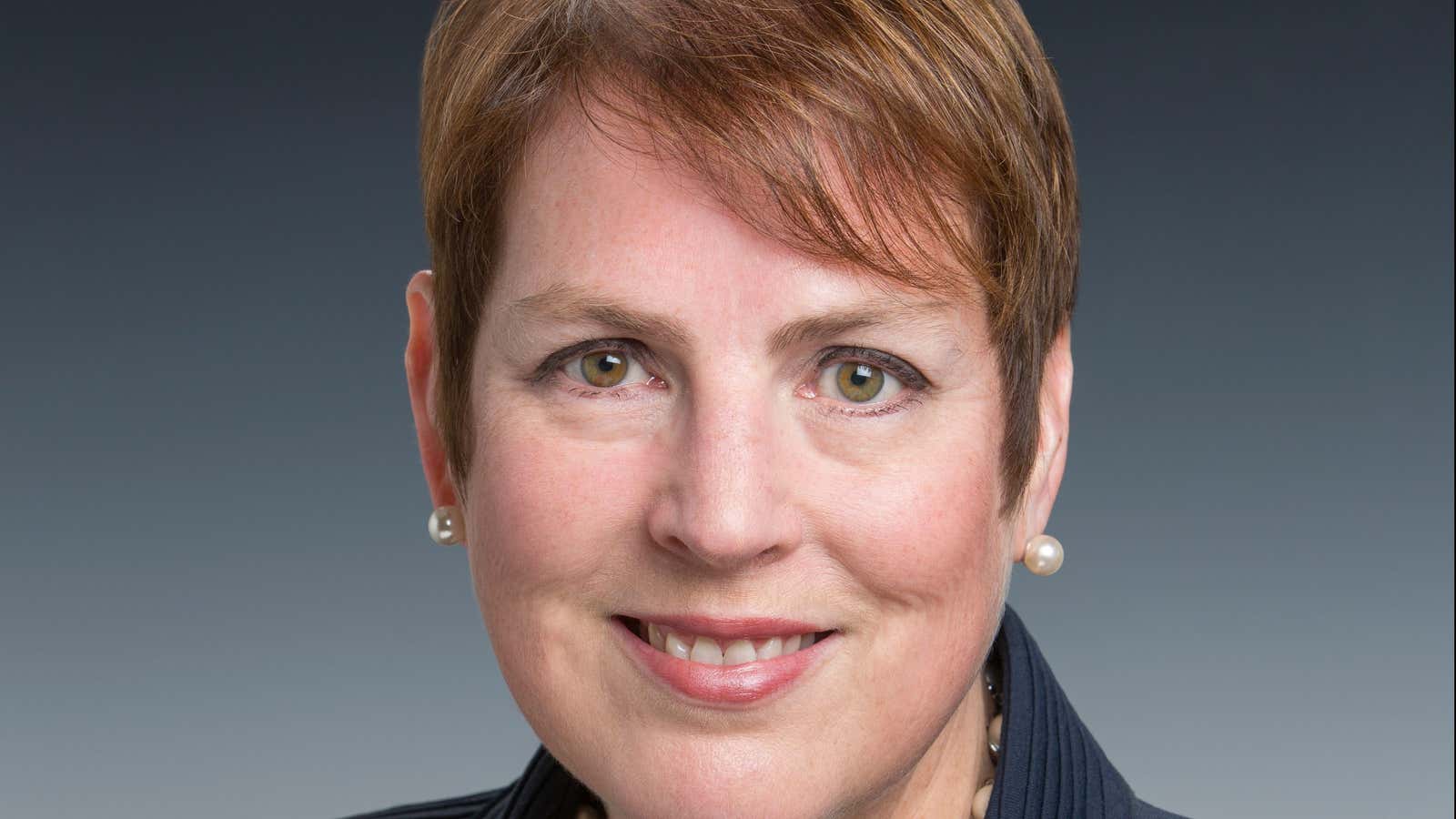This story is part of How We’ll Win in 2019, a year-long exploration of workplace gender equality. Read more stories here.
For decades, women have been under-represented in clinical drug trials, unaccounted for in everything from car-safety regulations to studies of work-related illnesses, and not taken seriously when seeking treatment for genuine pain and illness.
Major health issues like period pain—which can be “almost as bad as a heart attack”—are barely researched, and US regulators won’t even approve valid methods to treat it.
Last year, this phenomenon got a name: “Healthcare gaslighting.” With it has come the start of a public discourse on how to reckon with this long-ignored problem. Angela Rodell, CEO of the Alaska Permanent Fund, has one suggestion on how to tackle it: Hire more women in finance.
Rodell is one of only a couple of women to run a major sovereign wealth fund, a type of massive investor owned by a government (hers has around $60 billion in total assets). And people in her position can have significant influence on the way the healthcare industry works. As shareholders, investors can influence company priorities and provide oversight. Meanwhile, explicitly not investing in companies that ignore gender issues can force them to reconsider doing so.
That means asking executives at companies you’re thinking of investing in, “What are they doing in terms of diversifying their healthcare and making sure that they test across gender?” Rodell says. “Most studies on, for example, cholesterol drugs, heart medication, cardiac [disease] have all been done on men. And yet women have a very real exposure to these diseases, but they react very differently to the drugs.” Shareholders can use their power to push for more stringent regulations around trials or the publication of data that might not be publicly available, and can harangue executives when they think they’re doing things wrong.
Hiring women in these roles isn’t just an ethical issue; it makes business sense. “Women bring a whole different set of life experiences to the table than men,” Rodell says. That means they also flag investment opportunities that don’t occur to men. For example, dysmenorrhea (the clinical term for painful menstruation), interferes with around one in five women’s daily life—that’s around 10% of the population. A federally approved drug to treat it would immediately have access to that enormous market. As funds like Rodell’s comb every crevice in search of overlooked investment opportunities, that seems a pretty good place to start.
Read and watch Quartz’s full interview (membership) with Angela Rodell.
This story is part of How We’ll Win in 2019, a year-long exploration of workplace gender equality. Read more stories here.
